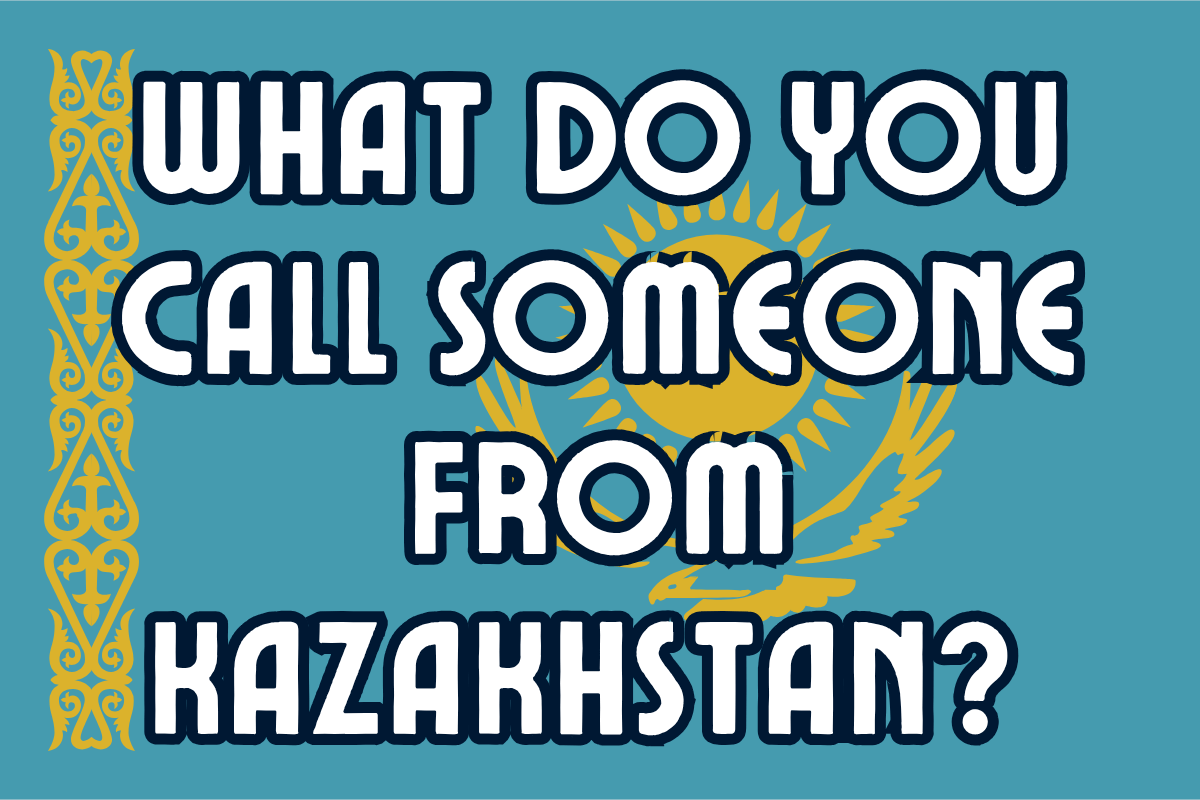Someone from Kazakhstan is called a Kazakh. This refers to, most broadly, a person who is ethnically Kazakh, though it could also refer to someone with Kazakh heritage. Often, the word Kazakhstani is used to refer to anyone with Kazakhstan nationality. Kazakhstan is a country of many different ethnic groups.
So, the short answer is that someone from Kazakhstan is called a Kazakh or a Kazakhstani depending on their own personal ethnic background.
In truth, though, it may not always be as simple as this, and given the ethnic diversity of Kazakhstan, it may be that any given individual may prefer to identify with this rather than with their nationality.
Let’s find out more.

What is someone from Kazakhstan called?
There are two basic answers, though at the same time none of these rules are really all that hard and fast.
The basic dichotomy is between “Kazakh” and “Kazakhstani”.
For the most part, the distinction that is usually made is that if you are from Kazakhstan or ethnically Kazakh, then the word is Kazakh.
Kazakhs are Turkic people that can be found across Central Asia and Eastern Europe.
Naturally, they are found in the greatest numbers in Kazakhstan, but they can also be found elsewhere.
For many of these people, Kazakh would be a term reserved for members of this ethnic group.
At the same time, this term is very often used simply as a demonym for people from Kazakhstan, regardless of their ethnic status.
Again, the rules are not always that strictly adhered to, and different individuals may have different attitudes to how the words are used.
At the same time, the word “Kazakhstani” is used more generally as a term for someone from Kazakhstan or with Kazakhstan citizenship.
So, most Kazakhs would also be Kazakhstani, but not all Kazakhstanis would be Kazakh, by this logic.
This is the simplest way of looking at it, then, though again, these rules are far from set in stone.
Furthermore, there are plenty of other distinct, minority ethnic groups in Kazakhstan who have Kazakhstani citizenship, but may not really identify with the nation.
Of the country’s population of about 15 million, close to 4.5 million are ethnically Russian.
There are also around 550,000 Ukrainians, and around 370,000 Uzbeks.
These people may either identify with their Kazakhstani nationality or with their original ethnicity.
These questions, then, are never all that simple to answer.
Let’s look at where the name comes from in the first place.
Where does the name “Kazakhstan” come from?
The name of Kazakhstan ultimately relates to the ethnic group that have lived there, as is so often the case.
The word Kazakh is an English variant of a Russian word which is simply the name for the group that lived in this region.
The precise etymological origin of this word itself is disputed, but it may relate to the Turkish word qaz, meaning “to wander”, given the nomadic lifestyle of many Kazakhs.
The suffix –stan, so common in countries in this part of the world, is a word of Persian origin which simply means “land” or “place of”, so again it is all related to the people who live there rather than the name of the people coming from the country.
We might translate Kazakhstan as the “land of the wanderers”, then.
Is Kazakh an ethnicity or a nationality?
So, again, this is the tough question that we have to consider.
Traditionally, there is a fairly simple answer, and that is that Kazakh is an ethnicity.
In our modern idea of nation states, we tend to think of people as being named after the land they live in, rather than the other way around.
But plainly Kazakhstan got its name from the people who lived in the area.
Historically, this referred to a single ethnic group, and so in that sense “Kazakh” is strictly an ethnicity and not a nationality.
However, things always change, and it is rarely that straightforward.
Plenty of Kazakh people no doubt feel the term is interchangeable with just someone who lives in Kazakhstan, whether they are an immigrant of another ethnicity or an ethnic Kazakh.
Kazakhstani, though, is usually the term taken to mean anyone from Kazakhstan regardless of their ethnic affiliation.
Where do Kazakhs live?
There is an estimated total global population of 16 million Kazakhs around the world.
Around 13 million of those live in Kazakhstan itself.
But there are huge populations of Kazakhs living outside of Kazakhstan.
The single largest group, by a long way, can be found in China, where there are around 1.5 million Kazakhs living.
There has been a large population of Kazakhs in China for a very long time.
Equally, you can find around 800,000 Kazakhs in Uzbekistan, where again Kazakhs have been living for a good while.
There are around 600,000 living in Russia, and a further 100,000 in Mongolia.
Traditionally, Kazakhs from all these areas have been regarded as ethnically Kazakh even though in many cases they have been native to these other countries for several generations.
So, things are really never all that clear-cut.
You can break it down in the somewhat reductive way of saying that someone from Kazakhstan is a Kazakh in terms of their ethnicity and a Kazakhstani in terms of their nationality.
But of course, many Kazakhstanis are not ethnically Kazakh, and yet they remain citizens of the country.
It often comes down to the groups and individuals you’re talking about and what their preferences happen to be.

